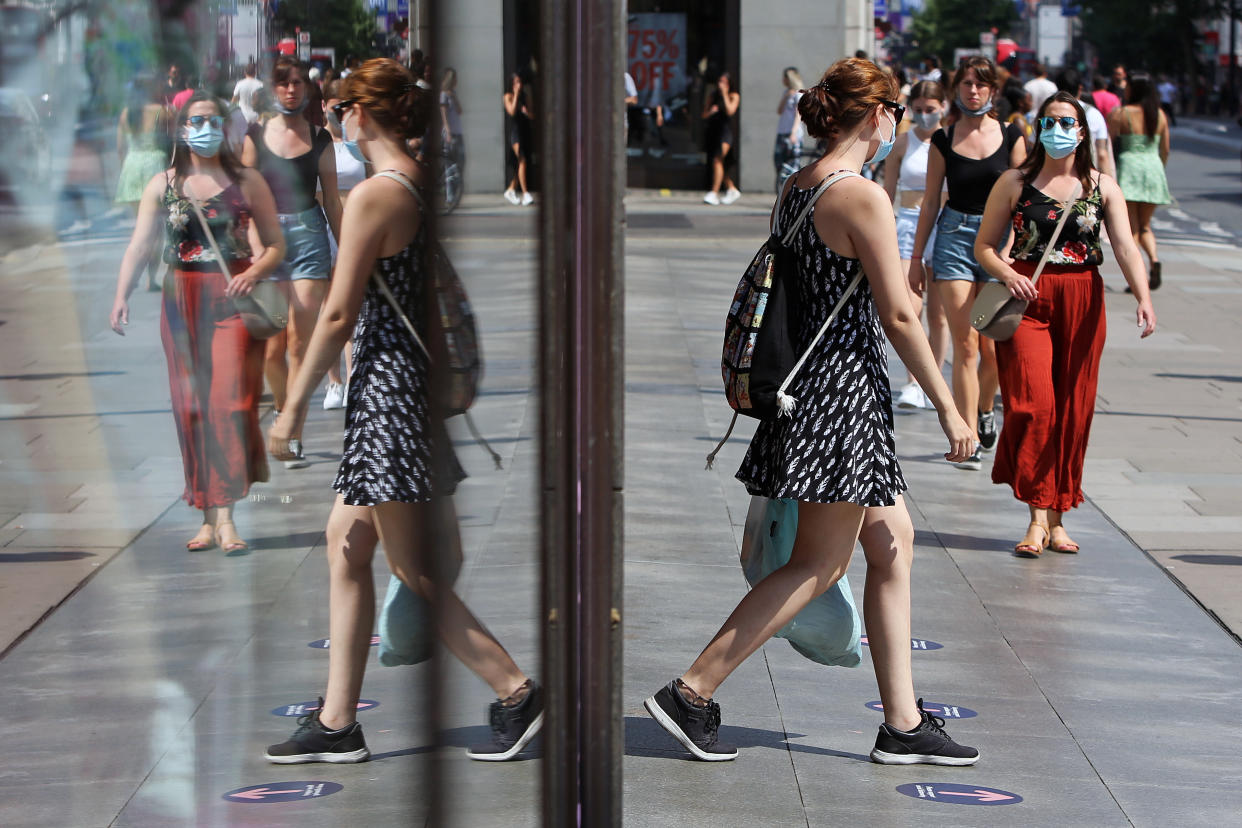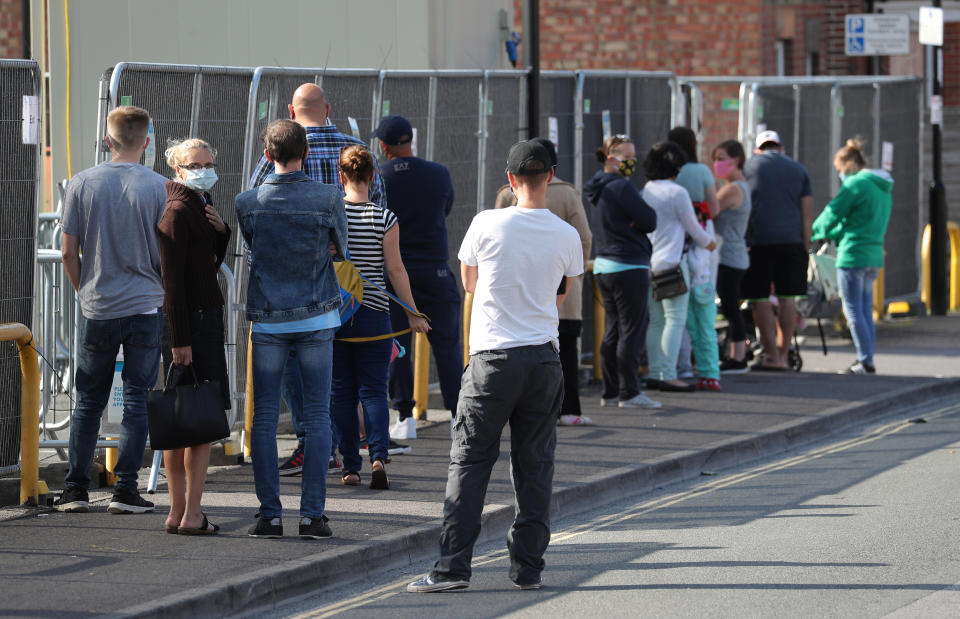Coronavirus cases top 3,000 again amid fears true number could be higher


Coronavirus cases have risen by a further 3,395 in the UK as the government struggles to deal with a huge backlog of tests.
A further 21 deaths were also announced, bringing the total number of people who have died from COVID-19 in the UK to 41,705.
Separate figures published by the UK’s statistics agencies show there have now been 57,500 deaths registered in the UK where COVID-19 was mentioned on the death certificate.
The government has struggled in recent days to meet a sharp increase in demand for coronavirus tests as cases across the country rose.
Speaking on Thursday, NHS Test and Trace chief Dido Harding acknowledged a majority of people who want a coronavirus test are unable to do so.
She told MPs: “It’s clearly obvious there is significantly more demand than there is capacity today.
“The number of people calling 119 and visiting the website would be three to four times the number of tests that we currently have available, but there will be some double counting in that.
“People will call from their home line and then from their mobile.”
Scientists have warned if the government loses control of its ability to track the virus then a second national lockdown may be necessary.
Read more: Headteacher blames large school virus outbreak on staff party

Daniel Lawson, senior lecturer in statistical science at the University of Bristol, said the last time we had reliable coronavirus figures in the UK was on 9 September because that was the last time the system was functioning properly.
He said: “The infection rate now will be substantially higher, and there are no data on how many people want a test but cannot get one, or what delays this will induce.”
Lawson added: “With tests being unavailable, some people will elect to not get tested, either to free tests for others or due to limited enthusiasm for fighting to get a test.
“Lack of trust is likely to reduce testing rates into the future.
“Statistically we lose power to distinguish what the true infection rate is in the population and management is severely compromised.
“Test and trace is going to be strongly impacted because it relies on timely tests being performed; even a small delay decreases its efficacy.”
The latest announcement comes as the government struggles to keep the virus under control.
There was a 75% increase in the number of coronavirus cases in England in the past week.
A total of 18,371 new people tested positive for COVID-19 in England in the week to 9 September.
This is a huge increase from the 9,864 figure in the previous week, the highest weekly number since test and trace was launched at the end of May.
Read more: Health minister denies Johnson was advised a 'two-week national lockdown is needed'
Net approval of government handling of COVID-19 has fallen to -33, it's lowest level ever.
30% of Brits think the govt is handling the pandemic well
63% think they are handling it badlyhttps://t.co/hrd1FPnCAV pic.twitter.com/9FSVZJgeLF— YouGov (@YouGov) September 17, 2020
The lack of available tests and the shortage of lab capacity has led to a lot of frustration directed towards the government.
YouGov on Thursday said that the number of people who say the government is doing well at handling the coronavirus pandemic has fallen to a record low.
The new figures show attitudes have fallen, with only 30% of people believing the government is doing well at handling the pandemic.
The net score view on how well the government is doing is -33, compared to -18 last week.
It is substantially worse than the previous low of -21 which was recorded in mid-August.
Coronavirus cases have also been rising across Europe, with the World Health Organization saying on Thursday they were at the same level as they were at the height of the pandemic in March.
Coronavirus: what happened today
Click here to sign up to the latest news, advice and information with our daily Catch-up newsletter

 Yahoo News
Yahoo News 
